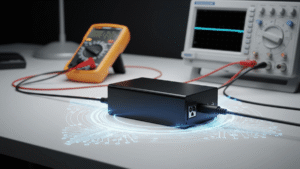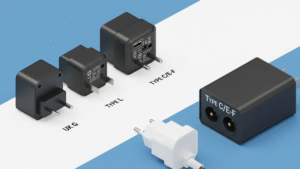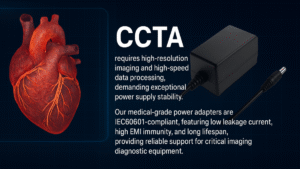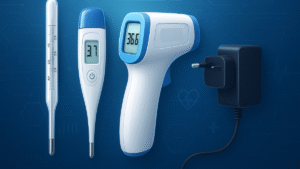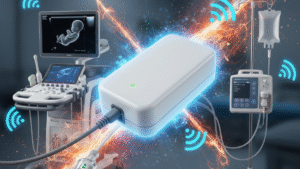In the healthcare industry, where every second counts and the reliability of medical equipment can determine life or death, a Medical Uninterrupted Power Supply (Medical UPS) plays a critical role. Unlike standard UPS systems used in offices or commercial facilities, a medical UPS is specifically designed to meet the stringent demands of hospitals, clinics, laboratories, and emergency medical services. It ensures that vital devices such as ventilators, surgical systems, infusion pumps, and diagnostic machines continue functioning seamlessly—even during power outages or voltage fluctuations.
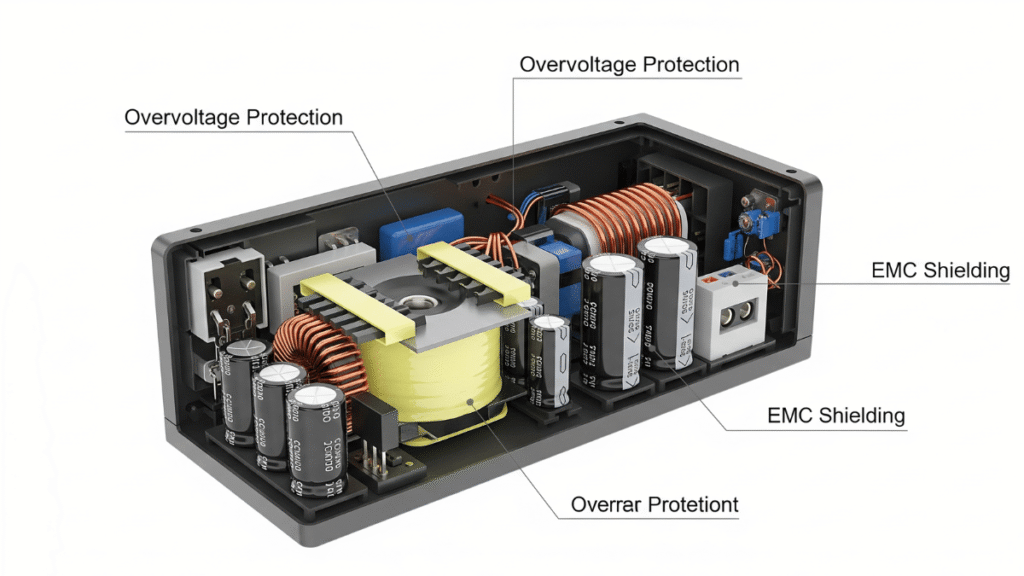
1. Definition and Functionality of a Medical UPS
A Medical Uninterrupted Power Supply is a backup power system designed to provide immediate and stable electricity to medical equipment when the main power source is disrupted. Its purpose is not only to offer temporary power but also to maintain the continuity of critical care until a generator takes over or the main power is restored.
Medical UPS systems typically combine:
Battery backup to provide instantaneous power
Power conditioning to protect sensitive electronics from surges and voltage instability
Alarm and monitoring systems to alert staff in case of malfunction or low battery
2. Why Medical UPS is Different from a Standard UPS
While both standard and medical UPS systems share basic functionality, medical-grade UPS solutions adhere to far more rigorous requirements. Some key differences include:
| Feature | Standard UPS | Medical UPS |
| Safety Standards | Basic commercial standards (e.g., CE, UL) | Must comply with medical-specific standards (e.g., IEC 60601-1, ISO 13485) |
| Electrical Isolation | Not always included | Requires galvanic isolation to protect patients from electrical shock |
| Reliability | Suitable for computers and servers | Mission-critical for life-sustaining equipment |
| Noise and Heat | Tolerable in server rooms | Designed for quiet and cool operation in patient care areas |
| Maintenance and Monitoring | Limited remote monitoring | Advanced diagnostics and real-time alerts essential |
3. Core Applications in the Healthcare Field
Medical UPS systems are used in a wide range of healthcare environments, including:
Operating Rooms (ORs): To prevent disruption during surgery
Intensive Care Units (ICUs): To power ventilators, monitoring systems, and infusion pumps
Diagnostic Imaging Centers: Ensuring uninterrupted scans from MRI, CT, and ultrasound machines
Ambulances and Mobile Clinics: Enabling reliable power on the go
Laboratories: Preserving test integrity and protecting data
4. Key Benefits of Using a Medical UPS
Implementing a high-quality medical UPS offers multiple benefits:
Continuous Patient Safety
Even milliseconds of power loss can disrupt life-support systems. A medical UPS ensures continuous operation.
Protection of Expensive Equipment
Voltage spikes or outages can damage sensitive diagnostic equipment. UPS systems provide clean, stable power.
Compliance and Accreditation
Many regulatory agencies require backup power solutions for accreditation. A certified medical UPS helps meet these standards.
Peace of Mind
For healthcare professionals, knowing that equipment won’t fail during critical procedures reduces stress and enhances performance.
5. Technical Features to Look for in a Medical UPS
When choosing a medical UPS, consider the following features:
Medical Safety Certification (IEC 60601-1)
True Online Double Conversion Technology
Hot-swappable battery modules
EMC/EMI filtering
Remote management capabilities
Battery autonomy of 10–30 minutes depending on device load
Silent operation with low heat emission
6. The Role of UPS in Modern Digital Healthcare
Modern hospitals are becoming more reliant on digitized systems—electronic health records (EHR), cloud-based imaging systems, and AI-driven diagnostics. These systems require constant power and data integrity, especially during emergencies or natural disasters. A medical UPS not only powers the hardware but also ensures data is not lost or corrupted due to abrupt shutdowns.
7. Ensuring Reliable Healthcare with Medical-Grade UPS
In today’s healthcare environment, where precision, safety, and uptime are non-negotiable, a medical uninterrupted power supply is more than just a backup system—it is an essential component of patient care and hospital infrastructure.
Choosing a reliable and certified medical-grade UPS ensures that equipment stays online during critical moments, ultimately saving lives and maintaining operational excellence.
Choose Quankang Medical Grade Power Supply for Critical Healthcare Needs
Quankang is a trusted provider of medical-grade power solutions, offering UPS systems engineered to meet the most demanding healthcare environments. Our UPS products comply with IEC 60601-1 medical safety standards, support true online double conversion, and feature ultra-quiet operation, making them ideal for ICU, OR, and mobile medical applications.
Whether you need continuous protection for surgical systems or stable backup for diagnostic imaging, Quankang medical UPS ensures your equipment operates reliably—no matter what happens to the grid.
Explore our full range of Quankang medical power supplies and discover how we protect every heartbeat and every scan.

